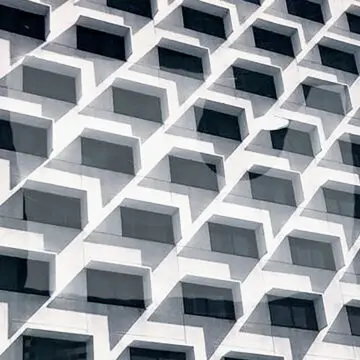Design Week Portland 2018
Holst’s Design Week tradition of opening our doors to our friends, neighbors, and design enthusiasts for an Open House continued this year. We doubled down on our commitment to Design Week all over the city with presentations, an installation, and a design challenge.
We welcomed ~200 people to our Central Eastside office for Poblano Pepper tacos served from their truck in our courtyard, Ben & Jerry’s ice cream provided by New Avenues for Youth, a few short presentations of our recent work, a big pile of Lego experimentation, pinups of our current and recent work around the office, and great conversations.
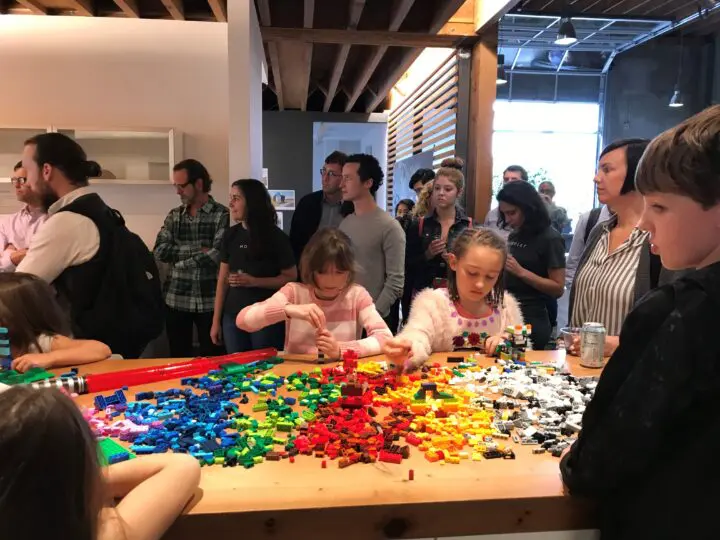
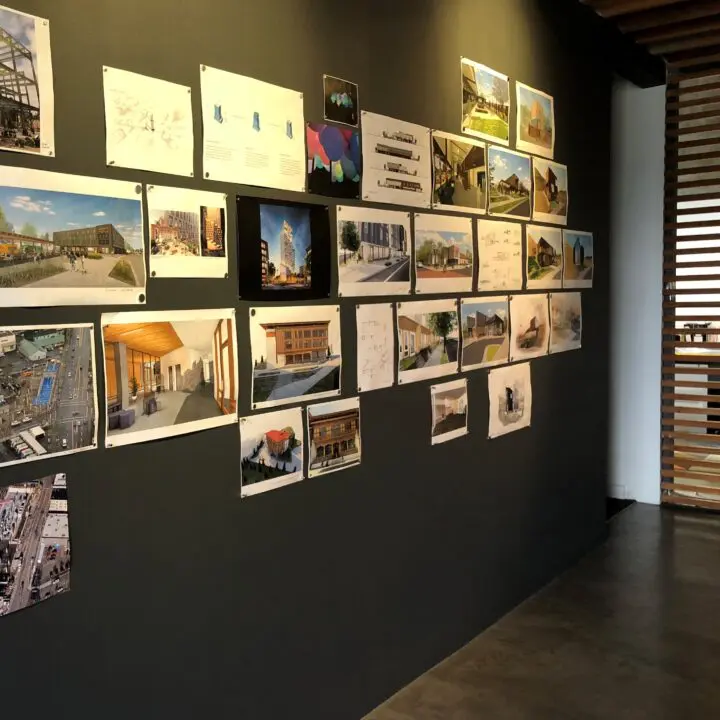
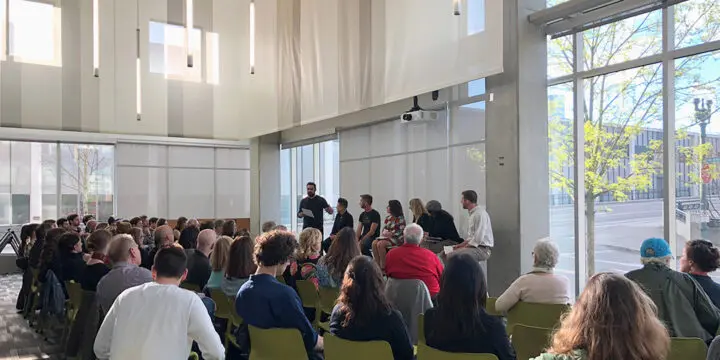
Houselessness is Not Normal
Holst partner Dave Otte assembled a panel of Portland leaders working on the front lines of fighting houselessness in our city. Moderated by Adam Davis of Oregon Humanities, the panel of Stacy Borke of Transition Projects, Kevin Cavanaugh of Guerilla Development, Multnomah County Chair Deborah Kafoury, Ashley Henry from Business for a Better Portland, and Kaia Sands of Street Roots spoke from a variety of perspectives about Portland’s houseless crisis, what is being done to address it, what more can be done, and how design can help.

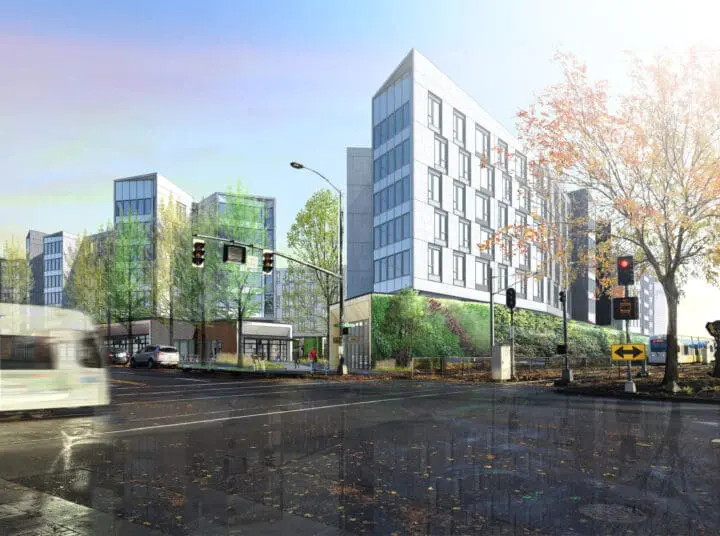
One City: Many Futures
As part of the One City: Many Futures series, Holst partner Kevin Valk and Senior Associate Dustin Furseth presented The Byline with 2.ink Studio, a landscape architecture firm. The two-phase development would bring new vitality to the neighborhood with over 1,300 new units of housing in a pedestrian-oriented, transit-accessible, amenity-rich new community adjacent to the Lloyd Center along both sides of NE Multnomah Street. Kevin and Dustin shared our vision and concept for the development.
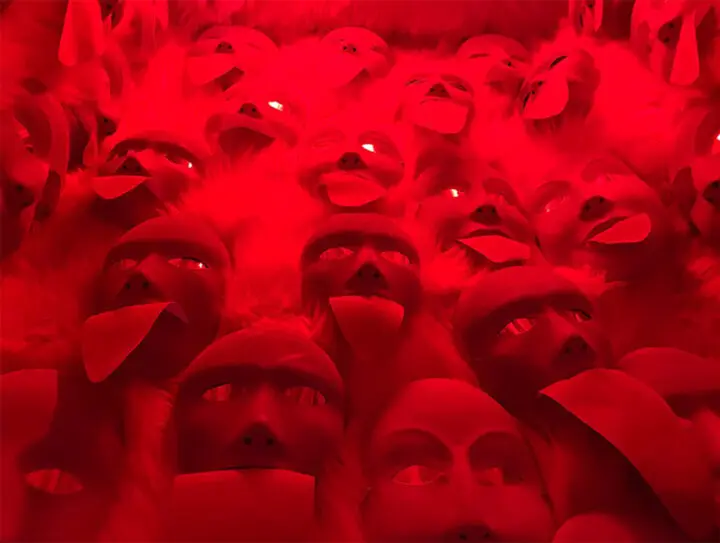
Opening Party Installation
Holst kicked off design week by designing an installation for the opening party.
“The Hot Box interprets the color red as an immersive experience inside a nondescript black box suspended from the ceiling of the Custom Blocks event venue.”
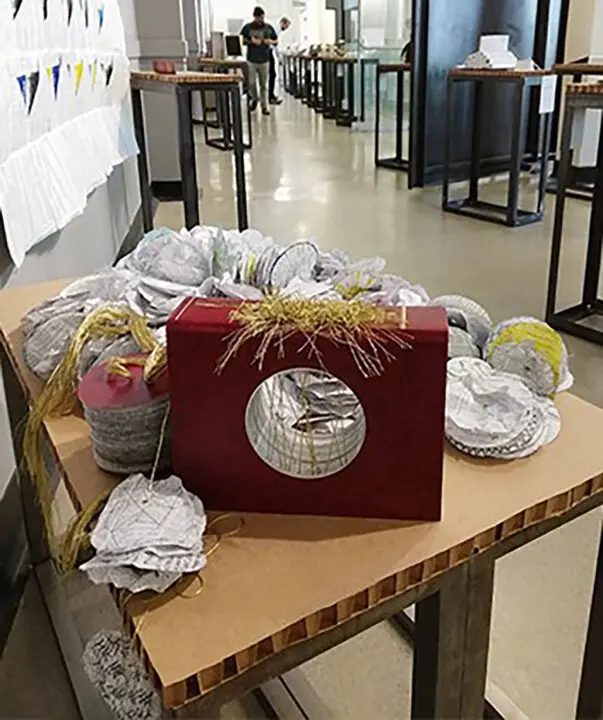
OOzero Charrette
Over the course of Design Week, Holst transformed a mundane, everyday object into an existentially meaningful item that could be included in a survival kit for a speculative future ‘event’ as part of a design charrette and exhibit sponsored by Portland State University.
We transformed a book into an Analog String Clock—a tool to mark the passage of time that reconnects us with a 28-day moon cycle, serves as a daily journal, and requires no technology or electricity. The string clock uses paper discs (excavated from the book) to create a daily diary spooled onto a string. After 28 days, the string is threaded through the book and across the clock’s ‘face’ to mark the passage of a month. Strings accumulate across the void as months become years, recording not only the experiences of a life but also the progress towards a post-event recovery and rebuild.


